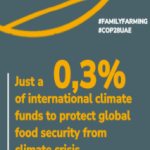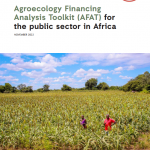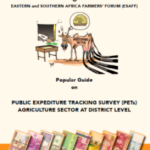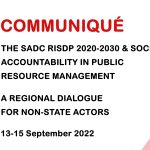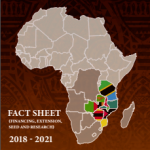AGRA, G8 Blamed for Attacking Africa’s Food Sovereignty
16/08/2013
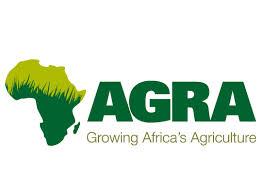
A recent meeting of the Alliance for Food Sovereignty in Africa (AFSA) held from 12th to 16th August 2013 in Addis Ababa, Ethiopia blamed, among others, the Alliance for a Green Revolution in Africa (AGRA) and the G8’s “New Alliance for Food Security and Nutrition” for strongly promoting the interests of the Multinational corporations at the expense of the rights and interests of smallholder farmers.
In a press statement releases during that meeting, AFSA stated that the treat to Africa’s Food Sovereignty was coming from the strong promotion and support for the corporate and genetically modified (GM) seeds, the use of agro-chemicals, resource grabs and laws that prevent farmers from freely using, sharing or selling their seed.
The threat posed by the corporate, the statement added, is not only to food security, food sovereignty and undermining smallholder famers, but also to Africa’s diversity and knowledge systems. The G8 New Alliance places a heavy emphasis on nutrition that, however, focuses almost exclusively on the bio-fortification of key staple crops.
According to the statement, currently, 80% of seed in Africa is bred by smallholder farmers, who freely save and share seed, resulting in a wide diversity of agricultural crops and a safety-net for food security. “We are outraged at the way African governments are being strong-armed into adopting draconian seed laws that ensure the dominance of corporate seeds; giving private breeders’ monopoly and exclusive marketing rights over seeds” said Elizabeth Mpofu, from La Via Campesina Africa, who is the ESAFF Vice-Chairperson.
The entry point for corporate agribusiness into Africa, adds Fatou Batta from the Association Nourrir Sans Détruire, Burkina Faso, is through valuable cash crops such as cotton. Bt cotton is promoted as necessary for African farmers to compete on the global cotton market. “Bt cotton production in Burkina Faso and South Africa has failed to achieve its promise. Small farmers are finding that yields and quality of Bt cotton are extremely low. For this reason Bt cotton planting this year has plunged from 400,000 hectares to 200,000 hectares in Burkina Faso.”.
The ALLIANCE FOR FOOD SOVEREIGNTY IN AFRICA (AFSA) is a Pan African platform comprising networks and farmer organizations working in Africa including the African Biodiversity network (ABN), Coalition for the Protection of African Genetic Heritage (COPAGEN), Comparing and Supporting Endogenous Development (COMPAS) Africa, Friends of the Earth- Africa, Indigenous Peoples of Africa Coordinating Committee (IPACC), Participatory Ecological Land Use Management (PELUM) Association, Eastern and Southern African Small Scale Farmers’ Forum (ESAFF), La Via Campesina Africa, FAHAMU, World Neighbors, Network of Farmers’ and Agricultural Producers’ Organizations of West Africa (ROPPA), Community Knowledge Systems (CKS), Plate forme Sous Régionale des Organisations Paysannes d’Afrique Centrale (PROPAC) and African Centre for Biosafety (ACB).
AFSA members represent small holder farmers, pastoralists, hunter/gatherers, indigenous peoples, citizens and environmentalists from Africa who possesses a strong voice that shapes policy on the continent in the area of community rights, family farming, promotion of traditional knowledge and knowledge systems, the environment and natural resource management. Thus, providing a forum to analyze, discuss issues, challenge policies and identify ways forward.

















